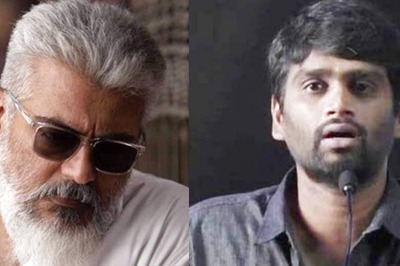
views
New Delhi: Railway Minister Dinesh Trivedi will have to dig deep into his pocket for eliminating the thousands of unmanned level crossings across the country that are a huge safety challenge for the cash-strapped network. Unmanned level crossings account for around 40 percent of railway accidents.
Trivedi, who would present the 2012-13 railway budget on March 14, is scrounging for funds, a whopping Rs 100,000 crore Indian Railways needs over the next five years to ensure the safety of over 18 million passengers travelling by train every day and goods. It is estimated that the removal of all level crossings (manned and unmanned) would itself require around Rs 50,000 crore.
Two high-level panels on safety and modernisation in their reports this month have suggested that the railways do away with the 32,735 level crossings along the 64,000-km network. Data available with the ministry shows that out of the 32,735 level crossings -- 17,839 them manned and 14,896 unmanned.
But the progress in dealing with the problem in the past two years has been slow, according to data accessed by IANS through reliable sources. While around 1,065 unmanned level crossings could be converted to manned ones, the railways could eliminate around 1,389 manned and unmanned level crossings by constructing overhead bridges or underpasses. At this pace, it is said, the railways would take another decade to eliminate the level crossings.
The issue has been flagged by a panel on railway safety headed by Anil Kaodkar, former Atomic Energy Commission chief, and another by Sam Pitroda, adviser to Prime Minister Manmohan Singh on innovation and information infrastructure, on modernisation.
Citing reasons for the slow progress in eliminating the level crossings or converting the unmanned into manned ones, officials blamed the states for not sharing the cost on a 50:50 basis.
At other times, issues like rehabilitation of slum dwellers living around the level crossings and difficulties in acquiring land for the overhead bridge or an underpass delayed the removal of the level crossings, the officials told IANS, speaking strictly on condition of anonymity.
Kakodkar's report points out that the advance warning safety equipment earlier tried at level crossings have failed due to theft. Voicing its concern over casualties that occur in accidents, the report said the level crossings were a drag on train operation, limiting line capacity. These also cost dearly to Indian Railways for their operation and maintenance.
The Kakodkar committee estimated that total elimination of all level crossings (manned and unmanned) within five years would cost around Rs.50,000 crore which can be recovered over the next 7-8 years due to savings in operation and maintenance costs and improved train movement.




















Comments
0 comment